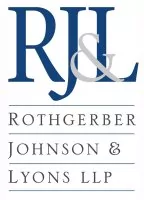Introduction
Parties are increasingly turning to voluntary mediation of their disputes as an alternative to litigation. Depending on where you live, the time it takes between filing a lawsuit and getting to trial can be one to four years. The expenses involved in litigating the case—depending on the fee agreement—can range from $10,000 to $500,000 or more in attorneys' fees and costs. If you are a defendant and the plaintiff prevails on a claim where attorneys' fees are awarded to the prevailing party, you will be required to pay not only your own attorneys' fees and costs, but also the fees and costs of the other side. If you are an unsuccessful plaintiff, you will not only be out your own costs and fees you agreed to with your attorney, but you will also run the high risk of being responsible for the defendant's costs. Moreover, regardless of which side you are on, there is no certainty in litigation.
These sobering realities have led to the adoption of alternative dispute resolution (ADR) across the country. One of the most common forms of ADR is mediation.
Mediation has, in fact, become so desirable that many corporations are now including it in their personnel policies and procedures, and most state and federal agencies that deal with employment disputes are as well. The U.S. Equal Employment Opportunity Commission (EEOC) began using voluntary mediation a few years ago and has reported tremendous success with it.
The reason mediation has become so popular in recent years is its high success rate. Many successful mediators report anywhere from a 80 to 95% success. A successful mediation produces a result that both sides can live with and that brings an end to the adverse relationship between the parties. The advantages of mediation are that it often happens early in the process and thus avoids the huge litigation expenses discussed above. In addition, it eliminates the great uncertainty of litigation by providing a known and acceptable resolution.
The Mediation Process—How to Get Great Results
Here are some strategies to help you get the best results from mediation:
- Attitude.
Mediation is not litigation. It is a structured form of negotiation. Therefore, the object is to get both sides listening and talking, not alienating one another. This requires a different frame of mind than litigation. It is astonishing how often this fundamental difference between mediation and litigation is overlooked.
- Preparation.
The single biggest mistake that attorneys make in the mediation process is not spending adequate time preparing. In this context, preparing means putting together a settlement notebook. It also means working on the client's expectations before the mediation starts. Parties who go into a mediation having spent considerable time and resources in preparing a mediation package are far more likely to achieve successful mediation than parties who, at the last minute, send a copy of the pleadings for the mediator's consideration.
- Written Materials.
Part of adequate preparation is providing the mediator with written materials that address the strengths and weaknesses of the case. Often it makes sense to send out two different mediation statements: one that is delivered to both the mediator and the opposing party, which obviously outlines the case from your perspective and highlights its strengths, and a second, addressed only to the mediator, that recognizes vulnerabilities and weaknesses in the case. A good mediation package should include a recitation of the facts with important documents, including attached affidavits; a detailed discussion of damages; and a strong legal argument section, with key cases attached.
- Openness Settles Cases, Not Secrecy.
Counsel for the parties often choose to keep important evidence a big secret. This is a by-product of the litigation atmosphere and its "hide-the-ball" concept. Secrecy is generally counterproductive in mediations.
In a forthcoming article, we'll discuss how certain behavior and strategies at the mediation itself can lead to getting better results from mediation.
Practical Significance
In mediations, the more information that is exchanged between the parties, the more likely a case will settle.
Gilbert M. Roman is special counsel in RJ&L's Denver office where he focuses his practice on labor and employment law, litigation, and alternative dispute resolution. He is a mediator with the American Arbitration Association and has written and given lectures on the topic. He provides assistance to clients on a wide range of employment-related issues, including the Americans with Disabilities Act, the Fair Labor Standards Act, Title VII of the Civil Rights Act of 1964, and the Age Discrimination in Employment Act. He advises corporate clients on litigation prevention measures and litigation strategy. Mr. Roman is a 1987 graduate of the University of Michigan Law School.
The content of this article is intended to provide a general guide to the subject matter. Specialist advice should be sought about your specific circumstances.

